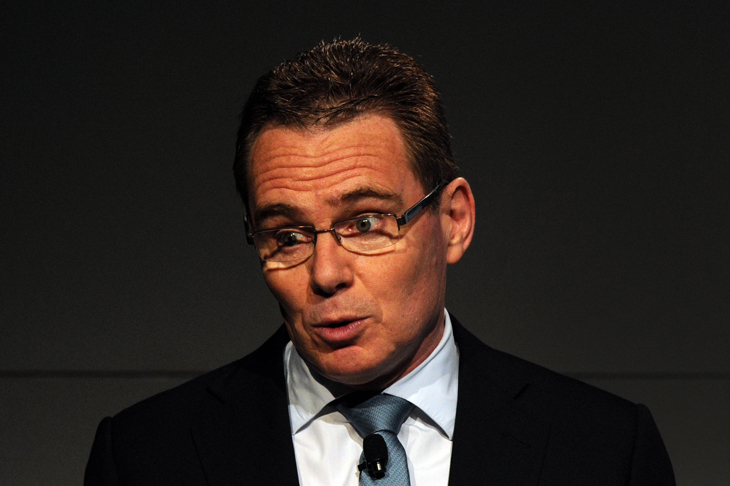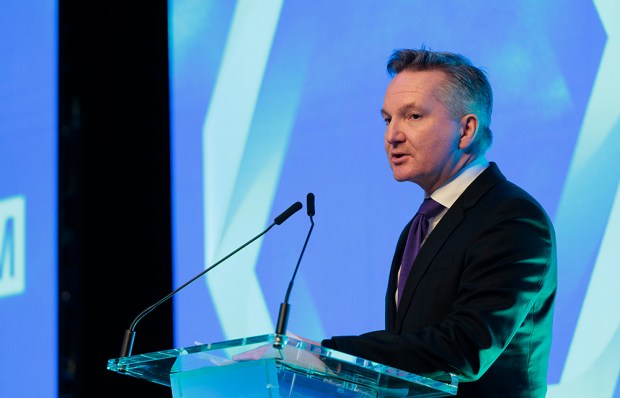When BHP changes CEO on January 1, and a practical mining man takes over, hopefully the world’s biggest miner will focus more on mining and less on social engineering. A financial success in his six years as CEO, Andrew Mackenzie was also active as a political underminer, using his position to push social agendas that did little to enhance BHP’s relationship with governments, both state and federal – and whose effect on the company’s image is open to question. Listed in a Streem survey as 2019’s most outspoken Australian corporate leader on social issues (even beating Qantas’ ubiquitous Alan Joyce), he ranged far beyond his climate change obsession to such issues as gender, domestic violence, human rights, mental health, sexual harassment, discrimination, indigenous affairs, changing the constitution and inequality. And he has publicly urged the government to dump its committed policy and put a price on carbon. It was his latest venture (backed up with $500m of shareholders’ money) that BHP should accept some responsibility for diminishing the overseas greenhouse gas emissions by BHP’s foreign customers, that clearly irritated Canberra. Australian governments have strong views that foreign countries are responsible for their own emissions. NSW recently introduced a law blocking such ‘scope three’ considerations in the mining approvals process, so countering the encouragement Mackenzie’s measure has given to climate campaigners (and some activist judges) in their efforts to destroy Australia’s biggest export industry – coal.
Mackenzie’s huge influence on the very nature of BHP is evident when comparing the company’s former statement of purpose, strategy and values in its annual report to his new version. No longer is it BHP’s purpose ‘To create long-term shareholder value through the discovery, acquisition, development and marketing of natural resources’. Shareholders now do not rate any mention at all; the Mackenzie virtue-signaling purpose is ‘To bring people and resources together to build a better world’. Does this really help sell more iron ore, coal or copper? Shareholders don’t even get a specific mention in the strategy, which has gone from: ‘to own and operate large, long-life, low-cost, expandable, upstream assets diversified by commodity, geography and market’ to having ‘the best capabilities, the best commodities and the best assets to create long-term value and high returns’. Clearly, what shareholders see as being in their best interests are not necessarily those of the company as seen by the CEO. Shareholders eventually get a look in after a long list of values: ‘Our shareholders to receive a superior return on their investment’.
Mackenzie has been subjected to attack from both sides of the social responsibility fence. Powerful blocks of shareholders, including the union-dominated industry funds and foreign-based climate activists, have pressured BHP to take greater measures (like canceling membership of mining organisations) in the cause of climate change, while others demand BHP stop its preoccupation with virtue-signaling, such as the commitment to an employment gender balance by 2025, involving a doubling of the current 25 per cent. The justification is that ‘company data shows that more inclusive and diverse teams outperform other teams in safety, productivity and culture’. So BHP ‘is working with suppliers to make sure the machines we use, the clothes we wear, the food we eat and the camps we live in are more inclusive’. When I put to some directors at BHP’s recent Sydney AGM that the 50 per cent gender balance objective was double the proportion of women filling full-time jobs in Australia and asked whether they intended to employ almost half their female workers as part-timers to match reality, it was admitted that the target was unrealistic and may change.
There are hopes that Mike Henry, Mackenzie’s successor, currently head of BHP’s main earner, its Australian minerals business, will bring much more of a miner’s approach to the job. Under his three years running minerals, BHP has become the world’s lowest-cost iron ore producer; his focus as CEO will be on technology to bring greater productivity. But will serving shareholders, its legal owners, ever be restored as a purpose for BHP’s existence?
Got something to add? Join the discussion and comment below.
Get 10 issues for just $10
Subscribe to The Spectator Australia today for the next 10 magazine issues, plus full online access, for just $10.
You might disagree with half of it, but you’ll enjoy reading all of it. Try your first month for free, then just $2 a week for the remainder of your first year.














Comments
Don't miss out
Join the conversation with other Spectator Australia readers. Subscribe to leave a comment.
SUBSCRIBEAlready a subscriber? Log in